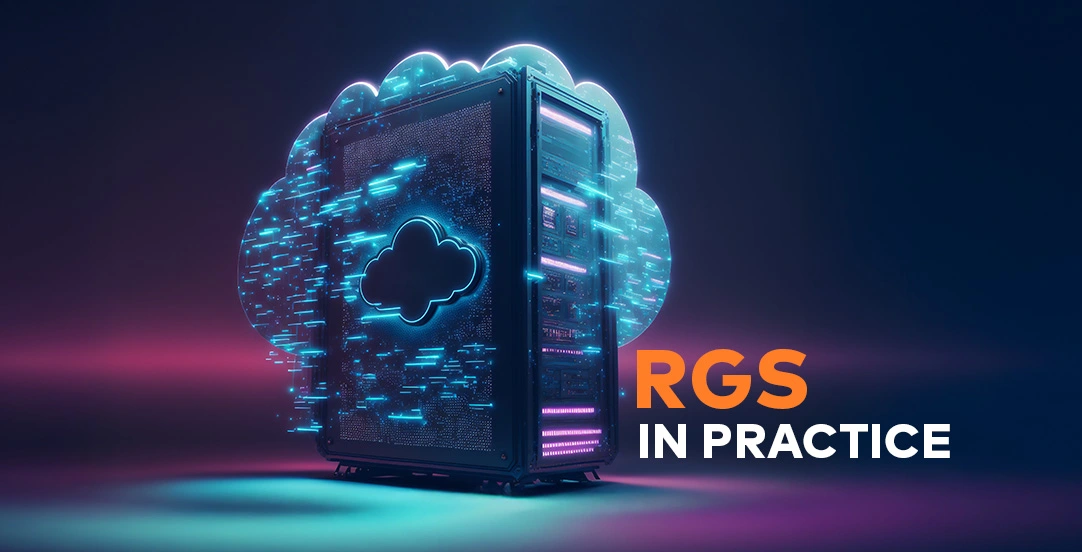Remote Server Gaming in iGaming

A Remote Gaming Server (RGS) is the backbone of online casinos, powering everything from game delivery to regulatory compliance. As the iGaming industry grows, RGS technology enables operators to optimize operations, enhance security, and meet evolving legal requirements. Below, we explore how these systems work, their applications, and the regulatory frameworks governing their use.
What is a Remote Gaming Server?
As we mentioned earlier, a Remote Gaming Server (RGS) is a central backend system that hosts and manages online casino games, such as slots, table games, and live dealer games. It stores game content and controls game mechanics, including random number generators (RNG), to ensure fair results. It also verifies user identities, manages secure login sessions, processes bets, payouts, and financial transactions in real time, and follows responsible iGaming rules and legal regulations. By centralizing game management, RGS helps iGaming operators reduce development costs and ensures smooth and secure gameplay on different devices.
RGS in iGaming in practice
Thanks to RGS, game developers can focus on design while leaving the technological and distribution aspects to the server. One of the main advantages of RGS is the ability to centrally host games and share them with multiple operators without the need for separate integrations for each of them. This significantly speeds up the process of launching new games and makes updates and maintenance easier.
Additionally, RGS allows for advanced data analysis and real-time game performance monitoring, enabling providers to optimize mechanics and adjust payout levels. Casino operators can also take advantage of bonus and promotional modules available at the RGS level, allowing for flexible management of player offers. An important aspect is also compliance with legal regulations – RGS provides tools for ensuring game fairness and adhering to responsible iGaming rules.
Thanks to the ability for quick integration, RGS supports expansion into new markets, removing technological barriers and reducing operational costs. These systems are also essential for cross-platform games, ensuring smooth performance across different devices, such as computers, smartphones, and tablets. In the face of growing iGaming competition, RGS has become the foundation for game providers, enabling them to scale quickly and implement modern technologies like artificial intelligence or blockchain. RGS integrates content from different providers (e.g., slots, sports betting, crash games) into a single platform, simplifying access for players. Currently, there are RGS platforms that aggregate over 2,400 games from more than 35 providers.
Facts about RGS worth remembering
- multi-Game aggregation – RGS integrates content from multiple providers (e.g., slots, sports betting, crash games) into a single platform, simplifying access for players.
- scalability – designed to handle peak traffic, RGS systems dynamically allocate resources to prevent lag or downtime during high-demand periods.
- cross-platform compatibility – ensures smooth gameplay across desktop, mobile, and in-person terminals via APIs.
- security & Fraud prevention – utilizes encryption, firewalls, and anti-DDoS strategies to safeguard player data and financial transactions.
How to choose the right RGS provider
Selecting the right RGS provider is a crucial step for operators who want to ensure smooth, secure, and high-quality user experiences. RGS is the foundation of the technical infrastructure that allows for the integration of games from various providers on a single platform. Therefore, the choice of an RGS provider should be carefully considered to ensure regulatory compliance, flexibility in content management, and the ability to respond quickly to changing market needs.
First and foremost, one of the most important criteria when selecting an RGS provider is their experience and reputation in the market. It’s worth paying attention to providers that have proven solutions and experience working with various operators and game providers. A reputable provider will be able to offer support in integration, technical service, and tailoring solutions to the client’s specific needs.
Another important aspect is compliance with legal and industry standards. The RGS should meet all licensing and regulatory requirements applicable to the market where the operator operates. It is also important for the RGS provider to regularly conduct security audits and provide tools for monitoring and ensuring game fairness. This allows operators to be confident that their offerings comply with regulations and meet responsible gaming requirements.
System performance is another critical element. When choosing an RGS provider, it is essential to consider their ability to handle large traffic volumes and ensure smooth gameplay without delays, which is particularly important for live games or sports betting. The RGS provider should offer scalability, allowing quick adjustments to infrastructure as business needs grow.
Equally important is support and ease of integration. The RGS provider should offer simple and fast methods of integration with casino platforms and other systems, saving time and resources. Technical support and the ability to customize solutions to the operator’s needs are also critical to ensuring system continuity.
RGS – market requirements
RGS platforms are required to comply with strict regional regulations to ensure fairness and security. Adhering to appropriate technical standards is crucial, such as RNG certification, which requires regular testing by accredited bodies to verify game randomness, in accordance with guidelines such as those from the UK Gambling Commission. Additionally, RGS platforms must ensure data security by adhering to ISO/IEC 27001 standards for encryption and user privacy protection. Another key aspect is responsible gaming tools, which include mandatory features like deposit limits, self-exclusion, and reality checks, as per RG Check criteria. These systems must also monitor player activity to detect potentially risky behaviors. Furthermore, operators are obligated to submit game test reports and RNG certificates before launching new content. For example, every RGS update requires retesting a representative sample of games to ensure continued compliance.
RGS technology is essential for contemporary iGaming operators, blending operational effectiveness with strict regulatory adherence. As regulations become more stringent and player demands increase, investing in a reliable RGS guarantees growth potential, security, and sustained competitiveness in the market.





















